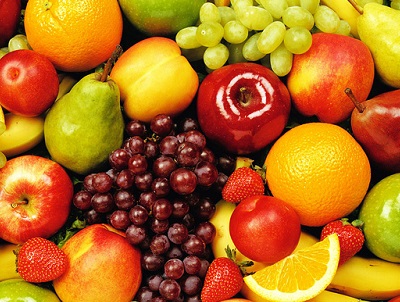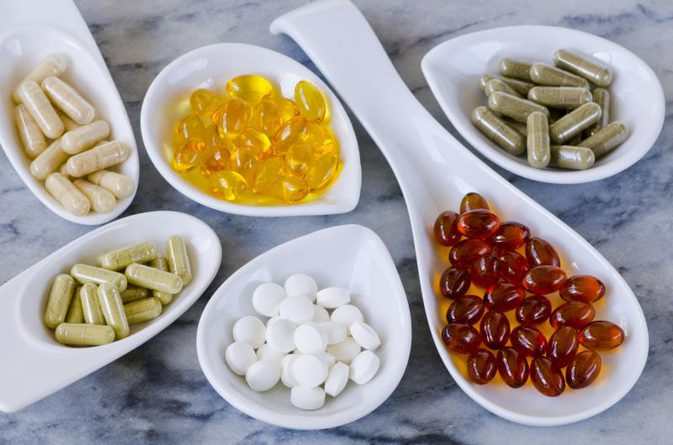 Vitamins are critical and essential chemicals that play important roles in many body processes. Our bodies cannot manufacture vitamins, with one exception -- vitamin D, so we rely on our diet and supplements to provide adequate nutrients. Over time and with age, the requirements for vitamins change as well. Gender plays a role in daily vitamin requirements and deficiencies can affect a variety of body systems. With so many options on the market, what are the best vitamins for women? How should we get them from foods? If you don't belong to the 7% of women who live a perfectly healthy life, then you should consider taking vitamin supplements.
Vitamins are critical and essential chemicals that play important roles in many body processes. Our bodies cannot manufacture vitamins, with one exception -- vitamin D, so we rely on our diet and supplements to provide adequate nutrients. Over time and with age, the requirements for vitamins change as well. Gender plays a role in daily vitamin requirements and deficiencies can affect a variety of body systems. With so many options on the market, what are the best vitamins for women? How should we get them from foods? If you don't belong to the 7% of women who live a perfectly healthy life, then you should consider taking vitamin supplements.
1. Antioxidant Vitamins
Antioxidants are a powerful defense to the ravages of age and disease caused by free radicals. Several vitamins that possess this characteristic can attack free radicals and minimize the negative effect on our bodies.
Vitamin A (retinol and carotenoids), vitamin C and vitamin E are the most potent antioxidant vitamins. By mitigating the effects of free radicals, vitamins can decrease the risk of chronic skin disease and slow down the aging process.
Vitamin A
Vitamin A is one of the fat-soluble vitamins and is stored in body fat. Vitamin D, E and K are the other fat-soluble vitamins.
- Benefits: Beta-carotene, which is converted to vitamin A, helps minimize the free radical damage to the body through its antioxidant effects. Beta-carotene, when converted to retinol, is important for healthy vision. The function of vitamin A is to maintain skin and mucous membrane healthy and strengthen soft tissue and bones. Deficiency of vitamin A would lead to dry eyes, abnormal bone development and reproductive system problems.
- Food Sources: Apricots, cantaloupe, broccoli, guava, peach, watermelon, carrots, pumpkin, kale and papaya.
Vitamin C
Vitamin C, also called ascorbic acid, is among the best vitamins for women and is found in brightly colored fruits and vegetables. Vitamin C is crucial for proper wound healing and also the manufacture of red blood cells. Vitamin C also plays a role in production of noradrenaline. Noradrenaline, also called norepinephrine, is a potent chemical that increases concentration and stimulates alertness. Both stress and ageing result in a decline in Vitamin C levels.
- Benefits: Vitamin C is crucial for proper wound healing and prevention of scurvy. It can maintain health of connective tissues such as collagen. Vitamin C also plays a role in boosting immune function.
- Food Sources: Oranges, potato, pepper, strawberries, grapefruit, broccoli, kiwi and tomatoes.
Vitamin E
Vitamin E was previously felt to be beneficial for heart disease, but large studies have called excess supplementation into question for most people.
- Benefits: Vitamin E may slow the ageing process and is important for red blood cell production and cell membranes maintenance. Excessive doses of vitamin E can result in a greater risk of bleeding.
- Food Sources: Cold water fish, corn and sunflower seeds, safflower oil, wheat germ, peanut butter and margarine.
Suggestions for Antioxidant Vitamins
Eating a balanced diet complete with whole foods and at least five servings of fresh fruits and vegetables a day is the best way to ensure adequate intake of antioxidant vitamins. Many adults fail to reach this goal and should discuss supplement use with their doctor or a dietician.
2. B Vitamins
B vitamins are important for energy and vitality. Red blood cell production, cognitive functions and DNA repair all depend on adequate B vitamin intake.
Vitamin B6
- Benefits: This vitamin is necessary for proper red blood cell formation and a deficiency can result in a type of anemia (low blood). Vitamin B6 also functions in metabolism and brain health.
- Food Sources: Chicken, oatmeal, cereals and seeds, meat, banana, avocado and beans.
Vitamin B12
- Benefits: The cells in our body divide and repair themselves on an ongoing basis. Vitamin B12 plays a pivotal role in that as well as forming various proteins. Inadequate B12 intake will result in anemia, numbness and tingling and fatigue. People with certain stomach conditions and those who have undergone gastric bypass often require monthly injections of B12.
- Food Sources: Eggs, cheese, milk, yogurt and fish.
Folic Acid
- Benefits: Folic acid is important in brain development and all pregnant mothers should digest enough folic acid. Folic acid is critical in the formation of the building blocks of our cells (DNA &RNA).
- Food Sources: Leafy green vegetables, citrus fruits, watermelon, strawberries, legumes, eggs and many types of meat.
Suggestions for B Vitamins
For healthy people, B vitamin deficiency is rare. Ensuring an adequate intake of a variety of fresh and wholesome foods is the best way to ensure adequate intake. Pregnant women should take a supplement to prevent birth defects such as spina bifida. Older persons and those who have intestinal problems should talk to their doctor and have B12 levels measured periodically.
3. Vitamin D
When looking for best vitamins for women, never miss vitamin D. Vitamin D is another fat-soluble vitamin but actually has some hormone like functions in the body.
- Benefits: Calcium and phosphorous are important for maintaining bone health and vitamin D plays a pivotal role in keeping these minerals in balance. Thin bones and fractures from minor trauma are the result of vitamin D deficiency (osteoporosis).
- Food Sources: Sunshine triggers production of vitamin D in the body and fish is an excellent dietary source.
Suggestions for Vitamin D
Older persons and those who do not receive much sunshine need to take vitamin D supplements. Persons of Asian origin may also be prone to deficiency. Vitamin D supplements along with calcium are recommended for older persons to help prevent osteoporosis.
4. Supplements Recommendation- Multivitamins
Dietary sources are the best option to ensure adequate intake of vitamins. Eating a balanced diet full of whole foods along with fresh fruits and vegetables makes it unlikely that a vitamin deficiency will occur. The exception is vitamin D in older people. While vitamin supplements are generally safe, mega-doses can result in serious health problems. Be sure to talk to your doctor before deciding to take an excessive amount of any vitamins or supplements.
10 Supplements to Consider
Some can't get enough of these best vitamins for women from diet, and it's time to have some supplements:
- Infinite Labs Women's Multi supports an active lifestyle and have added minerals.

- Optimum Nutrition Opti-Women provides essential multivitamins and should be taken twice a day.
- Now Eve is a reputable brand designed specifically for women.
- Irwin Naturals Women's Living Green Liquid-Gel Multi contains omega-3 oils, green tea and the essential vitamins women need.
- Met-Rx Active Woman gives vital minerals and antioxidants to improve power and performance.
- Now Female Balance is formulated to support normal hormone functions unique to females.
- Now Prenatal Gels is perfect for pregnant females and contains non-constipating iron, folate and calcium.
- Garden of Life Raw One is gluten and dairy free, and infuses elements of complete foods.
- Bayer Healthcare One a Day Women's is a complete multivitamin including magnesium, which helps maintain cardiovascular health at any age.
- Rainbow Light Women's One Multivitamin is easy on the stomach while promoting complete health and energizing support for a woman's body.
